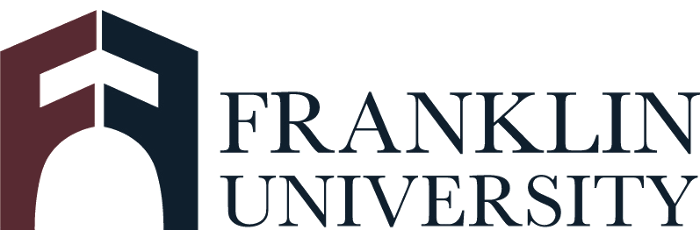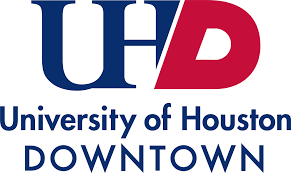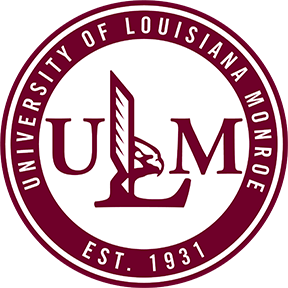It might surprise you that insurance has existed since 4000-3000 BCE. Back then, merchants in Babylon used insurance to protect themselves in case a ship – and its cargo – was lost at sea.
The first insurance company in America, known as the Philadelphia Contributionship, was founded in 1752 by Benjamin Franklin. Shortly thereafter, the first life insurance company was founded – the Presbyterian Ministers’ Fund. Today, things are obviously much different and more complex. We have insurance for our homes and cars, our belongings, and our health, to name a few.
The insurance business has grown into a very lucrative undertaking. Insurance companies make billions of dollars each year, and there are a host of insurance-related jobs in every corner of the nation.
If you’re interested in working in insurance, the best online degrees in insurance are a great place to get started!
What is an Insurance Degree?
You can enter the insurance industry without a degree, but some aspects of insurance and risk management are highly complex. Working in these fields often requires formal educational training, like a bachelor’s degree.
Many colleges and universities offer online insurance degrees. These degrees are often in the College of Business, and concentrate in insurance and risk management. Programs are usually titled Risk Management and Insurance, and successful students usually graduate with a Bachelor of Business Administration (BBA).
If you already have a bachelor’s-level degree but want to either enter or deepen your knowledge of the insurance field, then consider a master’s in insurance. These insurance degrees online give you the necessary knowledge to begin working in the field of insurance while also teaching you higher-level skills that are needed for insurance jobs.
It should be noted how important accreditation is when getting a degree in insurance (or any degree, for that matter).
Colleges and universities that are accredited have met rigorous academic standards as outlined by a third-party accrediting agency. Most schools are regionally accredited, which is the highest type of accreditation. Others are nationally accredited. While this type of accreditation is valid, coursework from a nationally-accredited school is often not transferable too a regionally-accredited school. Furthermore, some professional certifications require that your degree is from a regionally accredited school. Many types of financial aid are only available if you attend an accredited school as well.
So, before you enroll in any courses, check the accreditation status of the school in which you’re interested.
What are the Admissions Requirements for an Online Insurance Degree?
The specific requirements you must meet to be admitted to a program depends on the specific school. For example, where one school might require ACT or SAT scores, another might waive that requirement. As another example, one school might ask you to submit a personal statement in your application packet while another school might forego that requirement.
Generally speaking, though, admission requirements for a bachelor’s degree program include
- Having a high school diploma or GED
- Having satisfactory college admissions scores
- Letters of recommendation from high school teachers
Again, these requirements vary widely from one school to the next, so it’s best to consult with each school to which you are applying so you know exactly what’s required of you to apply.
See Also: 30 Great Economics Degree Scholarships
How Much Can You Earn with a Risk Management and Insurance Degree?
Earnings potential after getting an insurance degree online (such as a bachelor of science in Risk Management and Insurance) depends in part on your employment.
For example, the Bureau of Labor Statistics (BLS) breaks this bachelor’s preparation into two careers: underwriters and actuaries. The job title you have impacts your salary. The BLS sets median annual salaries at $76,390 for underwriters and $105,900 for actuaries.
Additionally, the BLS projects different job growth rates for the two roles. Between 2020-2030, job growth for actuaries is expected to grow at a faster-than-average rate at 24 percent. Underwriters, on the other hand, may see a 2 percent decline in job opportunities within the same period.
As another example, the BLS estimates that claims adjusters make a median annual salary of $65,080, and can expect job growth in the three percent range through the end of this decade.
In addition to your specific employment type, your level of experience will impact how much money you make with an insurance degree. If you’re fresh out of college, you should expect to earn less than someone with five years of industry experience. Conversely, with 20 years of experience under your belt, there’s a good chance you will earn more than your colleagues in similar positions.
If you specialize in a type of insurance, you might earn more money, too. For example, if you’re an actuary that specializes in medical insurance, you might make more than an actuary that works in the retail sector. Likewise, specializing in risk management could help you earn a larger paycheck than if you specialize in home, auto, and life insurance.
At the end of the day, there are many career opportunities in the insurance field. Each job has its own unique features, pay structure, employee benefits, and so on. Here’s a few insurance jobs you might consider exploring in more depth:
- Insurance Agent
- Insurance Management
- Enterprise Risk Management
- Financial Planning
Insurance underwriters, risk analysts, and insurance sales specialists are additional career paths you might consider.
See Also: Want to prevent insurance fraud? Consider the Best Forensic Accounting programs.
What’s Required for a Risk Management and Insurance Degree?
Most insurance companies prefer to hire people with bachelor’s degrees. Insurance degree programs online usually consist of about 120-semester credits of coursework. If you attend school full-time, the degree can be completed in four years. If you are a part-time student, you can expect to need at least another semester to a year to finish this degree.
The coursework you take is a collection of different types of classes. For example, you’ll take general education courses and major-specific courses in insurance degree programs. General education courses are broad, introductory classes on the fundamentals like:
- Mathematics
- Science
- Humanities
- Physical Education
- Language Arts
Major-specific required courses vary depending on the degree you’re seeking. For example, in a bachelor of science degree in risk management and insurance, you can expect to study:
- Insurance Law
- Risk Management Principles
- Accounting
- Statistics
- Economics
- Business Management
Some undergraduate degree programs require students to participate in internships as well. This is an important component of the learning process because it allows you to take what you’ve learned in class and apply that learning in a real-world environment under the supervision of an experienced insurance professional.
Is an Online Insurance Degree Frowned Upon?
The short answer is that, no, an online insurance degree is not frowned upon.
Online learning has come a long way over the course of the last generation. At the turn of the century, online learning was in its infancy, and as a result, some students felt like an online education wasn’t as good as what they could get on campus. Some employers felt that an online degree was also not as good as an in-person degree. Times have changed, though.
In fact, most schools don’t even differentiate between degrees earned online or in-person. There won’t be an asterisk on your diploma with a disclaimer that the degree was earned online.
If anything, society has realized that online learning in an insurance degree program is much more flexible and convenient than traditional on-campus collegiate learning. It requires a set of skills that employers like, too. You have to be adept at time management, setting deadlines, and monitoring your progress toward goals.
See Also: The Best College Majors for the Future
What Are the Best Risk Management and Insurance Degrees?
Online Schools Report (OSR) uses six data points to determine the best schools for insurance. There are three school-wide and three program-specific criteria.
For school-wide, OSR uses Student Satisfaction, Admission Rates, and the number of programs the school offers online. For program specific, OSR checks the Median Debt of graduates from that program, how many degrees are offered within that program’s umbrella department, and what percentage of students at that school graduated from that department.
The six statistics are displayed by each school in the rankings of bachelor’s degree in insurance programs below. The sliding bar under each statistic represents how that school compares to other institutions in the United States. “Not reported” means a school did not release that information to the US Department of Education.
A more detailed description of the OSR process can be found on our methodology page.
Let’s take a look at the top insurance bachelor’s degree programs. These universities that offer insurance degrees are listed in order of rank, from highest to lowest.
See Also: If you’re looking for a more general degree that can lead to several different careers in the financial sector, consider the Best Accounting Degrees.










